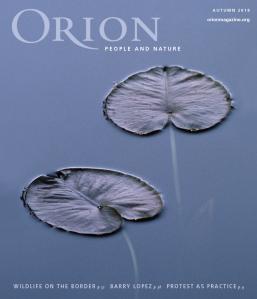
As I read Benjamin Rachlin's " Prescription for Change," I couldn't help but think about how the environment, these places that so many of us love dearly, could be destroying us. Destroying us as we humans have worked so diligently to destroy them. Perhaps not destroying us, but disabling us.
Though disease is not equivalent with disability, and most especially disability is not equivalent with disease, this article prompted thoughts on the effects of the environment on the experience of disability.
People with disabilities have long known how the environment affects health, and how changing the environment can have positive, or negative, effects on their lives. When our environment becomes unfavorable to healthy living, we become impaired. This is the social model of disability: that impairment is a function of external characteristics-the physical environment, societal attitudes, systemic barriers-not individual ones. Someone who uses a wheelchair isn't disabled because they cannot walk; they are disabled because they cannot live up to societal norms, which are designed, for the most part, by those who are able-bodied. When we are in environments that allow us to be healthy and to live as we choose, we are not impaired, no matter our physical or mental diagnoses.
Everyone, if we live long enough, will become disabled: this is one minority group that we all will eventually join. In the United States, 25% of households have at least one member with a disability. As the overall population ages, the number of people with disabilities will increase. In rural areas, people experience disability sooner, and at higher rates, than those who live in urban areas. For racial minorities, those rates are even higher. There are already huge disparities in the services available to those in rural areas, as well as higher unemployment and poverty rates. As our ecosystems change in ways that make life less conducive for all, human and nonhuman, I can't imagine that these disparities will lessen.
I keep circling back to this: when we lose biodiversity, the world that is left is a heartbreaking, barren place. I can't imagine living in a world without prairie chickens and salmon, without my little brother, who is autistic. Without everyone who speaks and thinks and looks and loves differently than I do. Only together, sharing our diverse experiences and knowledge, can we work to find solutions that will allow all of us to live in this changing environment.

